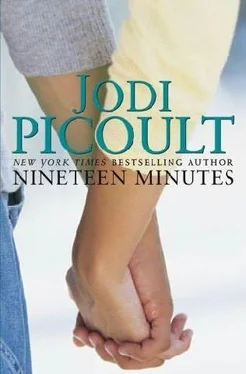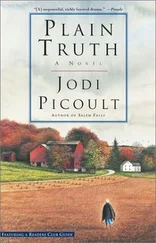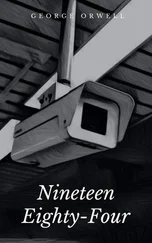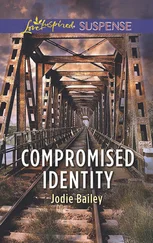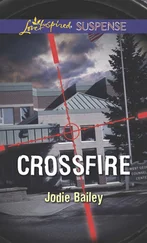She stood in front of a thrust of microphones. “Peter Houghton was just arraigned on ten counts of first-degree murder and nineteen counts of attempted first-degree murder, and various accompanying charges involving illegal possession of explosives and firearms in this recent tragedy. The rules of professional responsibility prevent us from commenting on the evidence at this point, but the community can rest assured that we are prosecuting this case vigorously, that we have been working around the clock with our investigators to make sure that the evidence is collected, preserved, and appropriately handled so that this unspeakable tragedy will not go unanswered.” She opened her mouth to continue but realized that there was another voice speaking, just across the hallway, and that reporters were defecting from her impromptu press conference to hear Jordan McAfee instead.
He stood sober and penitent, his hands in the pockets of his trousers, as he stared right at Diana. “I grieve with the community for its losses, and will represent my client to the fullest. Peter Houghton is a seventeen-year-old boy; he’s very scared. And I ask you to please have respect for his family and to remember that this is a matter to be determined in court.” Jordan hesitated, ever the showman, and then made eye contact with the crowd. “I ask you to remember that what you see is not always all it seems to be.”
Diana smirked. The reporters-and the people all over the world who would be listening to Jordan’s careful speech-would hear his little salvo at the end and believe that he had some fabulous truth up his sleeve-something that would prove his client was not a monster. Diana, however, knew better. She could translate legalese, because she spoke it fluently. When an attorney spun mysterious rhetoric like that, it was because he had nothing else he could use to defend his client.
At noon, the governor of New Hampshire held a press conference on the steps of the Capitol building in Concord. On his lapel he was wearing a loop of maroon and white ribbon, the school colors of Sterling High, which had sprouted up at gas station cash registers and Wal-Mart counters and were being sold for $1 each, the proceeds going to support the Sterling Victims Fund. One of his minions had driven twenty-seven miles to get one, because the governor planned to throw his hat into the Democratic primary in 2008 and knew this was a perfect media moment during which he could portray compassion at its strongest. Yes, he felt for the citizens of Sterling, and especially those poor parents of the dead, but there was also a calculated part of him that knew a man who could shepherd a state through one of the most tragic school shooting incidents in America would be seen as a strong leader. “Today, all of this country grieves with New Hampshire,” he said. “Today, all of us feel the pain that Sterling feels. They are all our children.”
He glanced up. “I’ve been up to Sterling, and I’ve spoken to the investigators who are working hard, round the clock, to understand what happened yesterday. I’ve spent time with some of the families of the victims, and at the hospital with the brave survivors. Part of our past and part of our future disappeared in this tragedy,” the governor said as he looked solemnly into the cameras. “What we all need, now, is to focus on the future.”
It took Josie less than a morning to learn the magic words: when she wanted her mother to leave her alone, when she was sick of her mother watching her like a hawk, all she had to do was say that she needed a nap. Then, her mother would back off, completely unaware of the fact that her whole face relaxed the minute Josie let her off the hook, and that only then could Josie recognize her.
Upstairs, in her room, Josie sat in the dark with her shades drawn and her hands folded in her lap. It was broad daylight, but you’d never know it. People had figured out all sorts of ways to make things seem different than they truly were. A room could be turned into an artificial night. Botox transformed people’s faces into something they weren’t. TiVo let you think you could freeze time, or at least reorder it to your own liking. An arraignment at a courthouse fit like a Band-Aid over a wound that really needed a tourniquet.
Fumbling in the dark, Josie reached underneath the frame of her bed for the plastic bag she’d stashed-her supply of sleeping pills. She was no better than any of the other stupid people in this world who thought if they pretended hard enough, they could make it so. She’d thought that death could be an answer, because she was too immature to realize it was the biggest question of all.
Yesterday, she hadn’t known what patterns blood could make when it sprayed on a whitewashed wall. She hadn’t understood that life left a person’s lungs first, and their eyes last. She had pictured suicide as a final statement, a fuck you to the people who hadn’t understood how hard it was for her to be the Josie they wanted her to be. She’d somehow thought that if she killed herself, she’d be able to watch everyone else’s reaction; that she’d get the last laugh. Until yesterday, she hadn’t really understood. Dead was dead. When you died, you did not get to come back and see what you were missing. You didn’t get to apologize. You didn’t get a second chance.
Death wasn’t something you could control. In fact, it would always have the upper hand.
She ripped the plastic bag open into her palm and stuffed five of the pills into her mouth. She walked into the bathroom and ran the tap, stuck her head close to the faucet until the pills were swimming in the fishbowl of her bulging cheeks.
Swallow, she told herself.
But instead, Josie fell in front of the toilet and spit the pills out. She emptied the rest of the pills, still clutched in her fist. She flushed before she could think twice.
Her mother came upstairs because she heard the sobbing. It had seeped through the grout of the tile and the soffits and the plaster that made up the ceiling downstairs. It would, in fact, become as much of this household as the bricks and the mortar, although neither of the women realized it yet. Josie’s mother burst into the bedroom and sank down beside her daughter in the attached bathroom. “What can I do, baby?” she whispered, running her hands up and down Josie’s shoulders and back, as if the answer were a visible tattoo instead of a scar on the heart.
Yvette Harvey sat on a couch holding her daughter’s eighth-grade graduation photo, taken two years, six months, and four days before she died. Kaitlyn’s hair had grown out, but you could still see the easy lopsided smile, the moon face that was part and parcel of Down syndrome.
What would have happened if she hadn’t chosen to mainstream Kaitlyn in middle school? If she’d sent her to a school for kids who had disabilities? Were those kids any less angry, less likely to have bred a killer?
The producer from The Oprah Winfrey Show handed back the stack of photographs that Yvette had given her. She hadn’t known, before today, that there were levels of tragedy, that even if the Oprah show called you to ask you to tell your sad story, they would want to make sure it was sad enough before they let you speak on camera. Yvette hadn’t planned to show her pain on television-in fact, her husband was so dead set against it he refused to be here when the producer came to call-but she was determined. She had been listening to the news. And now, she had something to say.
“Kaitlyn had a beautiful smile,” the producer said gently.
“She does,” Yvette replied, then shook her head. “Did.”
“Did she know Peter Houghton?”
“No. They weren’t in the same grade; they wouldn’t have had classes together. Kaitlyn’s were in the learning center.” She pushed her thumb into the edge of the silver portrait frame until it hurt. “All of these people who are going around saying that Peter Houghton had no friends-that Peter Houghton was teased…that’s not true,” she said. “My daughter had no friends. My daughter was teased every single day. My daughter was the one who felt like she was on the fringe, because she was. Peter Houghton wasn’t a misfit, like everyone wants to make him out to be. Peter Houghton was just evil.”
Читать дальше
